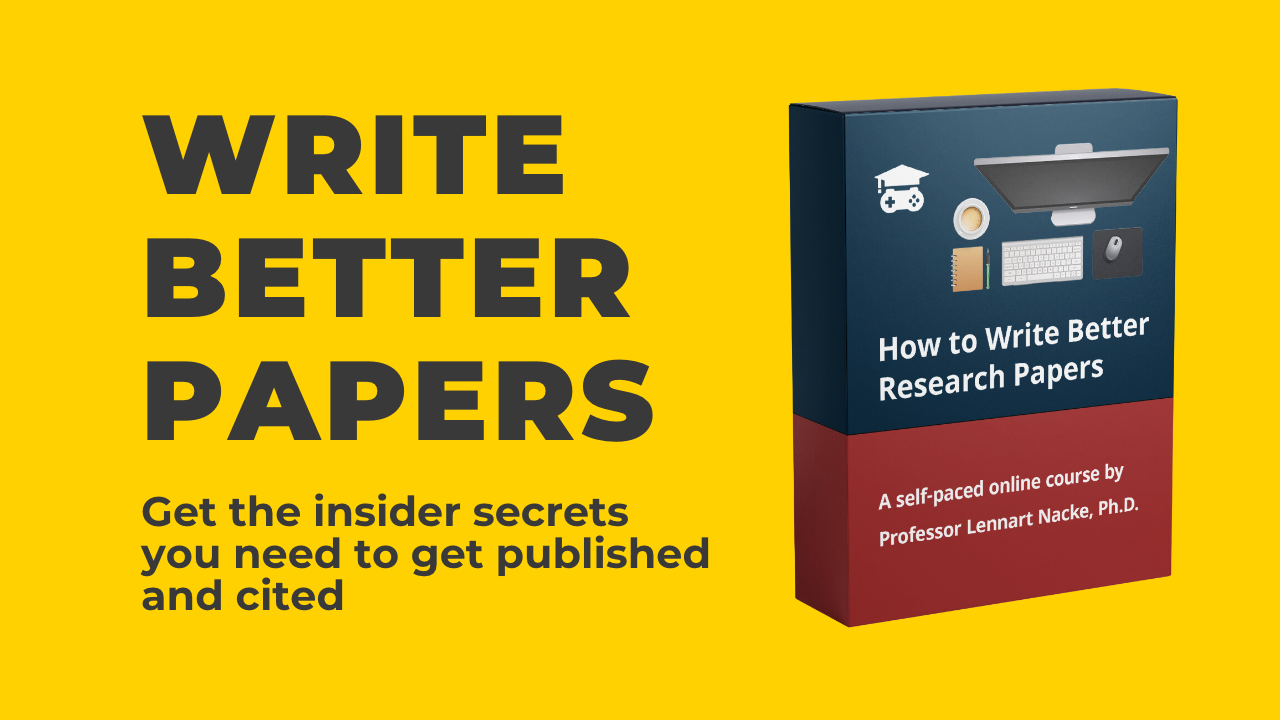I’ve been lied to. As a result, I’ve lied to my people on social media. Sorry. Academia has fed us an impenetrable myth: that research is about finding gaps in the existing knowledge. I ate it up. And, boy, that chase felt good. Channeling your inner Indiana Jones to fill those gaps in the literature (although all he did in the last movie was fill an age gap with computer-generated imagery). But, before you call me a dementor because I suck the joy out of everything, know that there is something inherently easy and exciting about using research gaps as motivation for a research paper or when looking to find a research topic.
You've probably heard it a thousand times. I’ve preached about research gaps myself (and used them copiously in my writing), but I’m here to tell you now that just chasing gaps is a recipe for irrelevance. Larry McEnerney, the director of the University of Chicago's writing program, opened my eyes. It's a trap that leads to countless hours spent on research that, frankly, nobody cares about in the long run. Gaps are like redshirts on a Star Trek away mission. Nobody cares if they’re gone. But don't worry, there's a better way. Luckily a way I’ve been teaching myself for a long time in my CHI writing course as well. Something I learned from Carl Gutwin years ago. And it has to do with something much more valuable: problems. Real, meaningful problems that your readers actually care about. Like having to spend the winter with Jack Torrance at the Overlook Hotel. The difference between research that gets cited boatloads, and research that fades and falls to forgotten fragments.

How to Write Better Research Papers
Tired of rejection and obscurity? This course delivers the insider secrets you need to get published and cited in social sciences and at the most competitive HCI venue: CHI.
The gap mentality stems from an outdated, positivistic view of knowledge. It assumes that knowledge is like a giant, finite crossword puzzle, and our job as researchers is to fill in the missing squares. We find an area that hasn't been studied, and—voila—we've justified our research. But here's the ugly truth: knowledge is infinite. If you fill a gap in an infinite field, how many gaps are left? An infinite number. It’s just like Nintendo releasing another Mario or Zelda game, you know there is an infinite number of those left, too. You've achieved precisely nothing. Productivity level: Snorlax.

The problem is about who gets to say what is considered knowledge. Historically, this has been a set of people who look very much the same and who use the same toilets, but fortunately, this is changing. However, these people in power (academic power, but still) get to say what is considered knowledge, and what isn't. Arguing that something is new or original isn't enough. You have to convince the crew in peer-review.
Think about it: we could generate new knowledge right now by counting the number of people reading this email. Nobody knows that number (except for me, I can look it up and I’m excited it’s growing), but would anyone actually care? Of course not! Because it's utterly useless information (to most people that are not me or advertisers wanting to sponsor this newsletter). New does not equal valuable.
The Paradigmatic Power of the Problem
Instead of chasing gaps, successful researchers focus on problems—specifically, problems that their target community of readers cares about solving. This is a fundamental shift in mindset. Your purpose is not self-expression but transformation. First, you write to express your inner thoughts, to understand yourself, to think. The second form of writing, the one that gets you published is about changing your readers. Less personal revelation, more public revolution. To be clear, this isn't about lying, but about understanding that there are different functions of an academic piece. You are writing to change the ideas of an existing community. Your peers. That’s your main audience. Instead of asking "What hasn't been studied?" ask yourself:
- What are the existing inconsistencies, tensions, or contradictions in the current understanding of this field? There is a difference between arguing that someone is wrong, and reframing the argument to be about contributing to the overall knowledge.
- What are the limitations of current approaches, and why do those limitations matter?
- What problems are people in my field grappling with, and how can my research help address them?
You will fill conceptual gaps if you focus your research on solving real problems. The value of your work to your academic community will increase. Your work becomes not just an addition to the literature, but a catalyst for advancing your field's understanding.
How to Spot a Valuable Research Problem
Here's how to identify problems that will make your research resonate:
- Know your audience. This is paramount. Who are the key players in your field? What are their current debates and concerns? A problem is only a problem for someone. So, a problem doesn’t exist in a vaccum of your subject matter but it’s a problem for one of your readers somewhere. For example, according to Pew Research Center data from 2023, public trust in scientists has declined since the beginning of the COVID-19 pandemic, particularly among certain political groups. Before the pandemic, trust in scientists was high, with 87% of US Americans expressing at least a fair amount of confidence in April 2020. However, by October 2023, this figure had dropped to 73%, marking a significant decline. Distrust also increased, with 27% of Americans expressing little or no confidence in scientists by late 2023 (which continues to decline), compared to just 12% in early 2020. This presents a problem for researchers seeking to communicate the importance of scientific findings to a skeptical audience.
- Look for instability, not just absence. Instead of simply pointing out that something hasn't been studied, look for areas where existing knowledge is unstable, inconsistent, or contradictory. This is where the real problems often lie. Use words like "however," "but," "inconsistent," or “anomaly" to highlight these instabilities. Spend some time finding those code words in articles from your field and train yourself to spot value-creating language.
- Articulate the cost. Why does this instability or problem matter? What are the negative consequences of not addressing it? Frame the problem in terms of its cost to the field, to society, or to a specific group of people. When searching for a good problem, look for its impact on specific readers, not just “the field” but real people working in the field.
- Argue instead of explaining. Your goal isn't to simply explain your ideas; it's to persuade your readers that your perspective is valuable. Remember that you want to move them from a state of knowledge before encountering your text to a state of knowledge after encountering your text. Anticipate their doubts and address them head-on. To create value, you must persuade your readers first.
This leaves us with another interesting tidbit. Rules, however enticing they are, are often generic and not aimed at your specific reader in your specific field. If you are thinking about writing rules, you are often not thinking about your reader. Specific readers are not generic. Don’t send a Charmander to fight a Blastoise or your days as Pokémon trainer might be numbered. In the same way, gaps are more generic and research problems are more specific.
Stop chasing gaps. They’re a phantom. A void in the ever-expanding universe of knowledge. A distraction from the real work of research. Start focusing on problems, on the inconsistencies and challenges that your research community cares about. This is how you produce research that matters, research that gets read, cited, and makes a genuine impact.
P.S.: Curious to explore how we can tackle your research struggles together? I've got three suggestions that could be a great fit: A seven-day email course that teaches you the basics of research methods. Or the recordings of our AI research tools webinar and PhD student fast track webinar.






